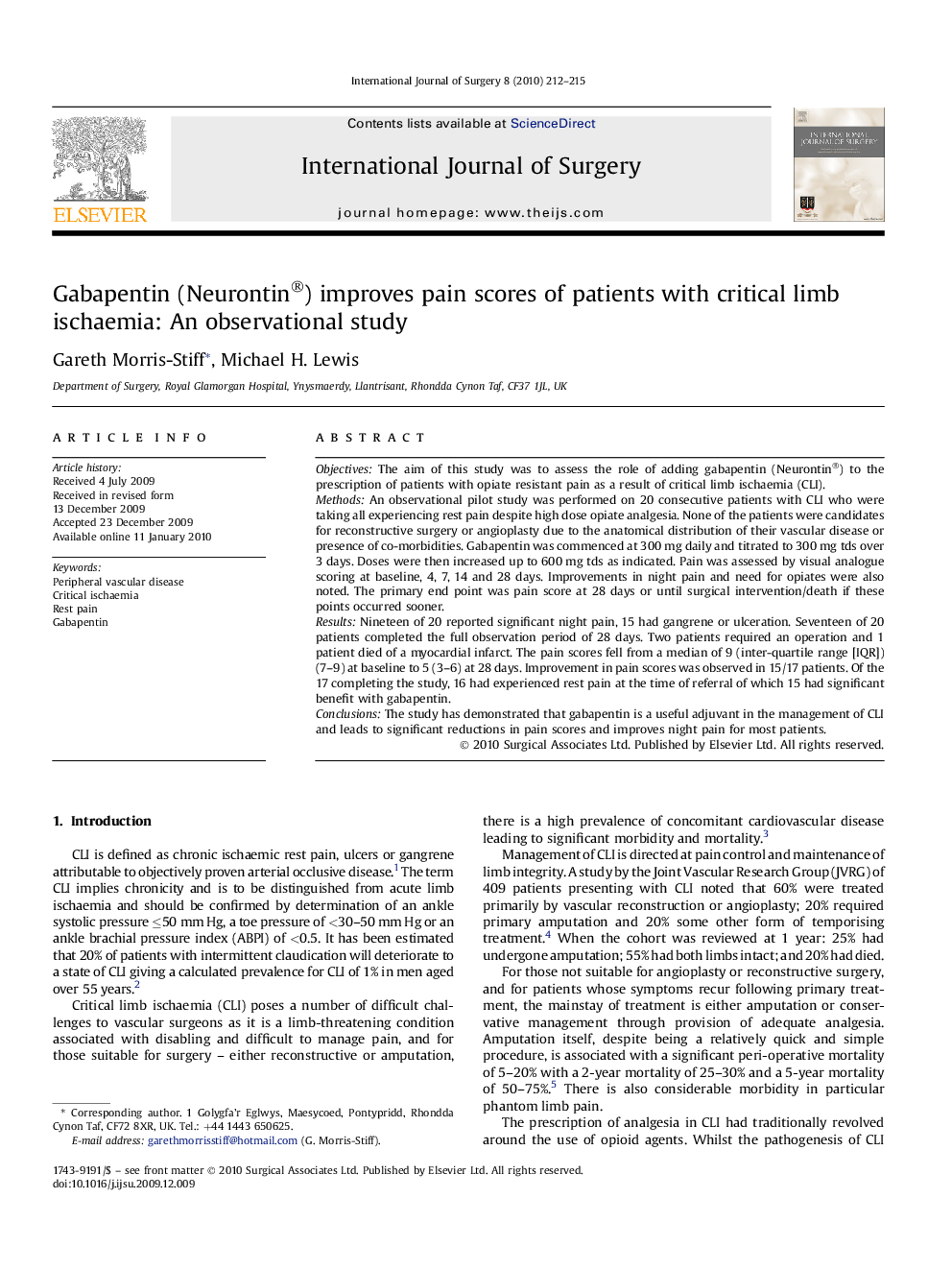| Article ID | Journal | Published Year | Pages | File Type |
|---|---|---|---|---|
| 4287565 | International Journal of Surgery | 2010 | 4 Pages |
ObjectivesThe aim of this study was to assess the role of adding gabapentin (Neurontin®) to the prescription of patients with opiate resistant pain as a result of critical limb ischaemia (CLI).MethodsAn observational pilot study was performed on 20 consecutive patients with CLI who were taking all experiencing rest pain despite high dose opiate analgesia. None of the patients were candidates for reconstructive surgery or angioplasty due to the anatomical distribution of their vascular disease or presence of co-morbidities. Gabapentin was commenced at 300 mg daily and titrated to 300 mg tds over 3 days. Doses were then increased up to 600 mg tds as indicated. Pain was assessed by visual analogue scoring at baseline, 4, 7, 14 and 28 days. Improvements in night pain and need for opiates were also noted. The primary end point was pain score at 28 days or until surgical intervention/death if these points occurred sooner.ResultsNineteen of 20 reported significant night pain, 15 had gangrene or ulceration. Seventeen of 20 patients completed the full observation period of 28 days. Two patients required an operation and 1 patient died of a myocardial infarct. The pain scores fell from a median of 9 (inter-quartile range [IQR]) (7–9) at baseline to 5 (3–6) at 28 days. Improvement in pain scores was observed in 15/17 patients. Of the 17 completing the study, 16 had experienced rest pain at the time of referral of which 15 had significant benefit with gabapentin.ConclusionsThe study has demonstrated that gabapentin is a useful adjuvant in the management of CLI and leads to significant reductions in pain scores and improves night pain for most patients.
